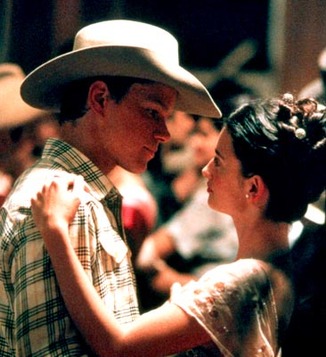 The greatest thing happened today. My AP Enlgish 12 teacher, Mrs.Fassbender, came up with the great idea of choosing a movie based on a piece of Literature Fiction and showing it to the class to analyze. Now let me tell why I like this so much.
1. It's in a movie form. That's a PLUS.
Movies have a certain quality transporting you from your current location to the story being told in the movie. It is sort of like you live as the characters live and feel what they characters feel.
2. It's a creative modernized new way to teach.
I believe this kind of assignment is far more efficient than if Mrs. Fassbender were to give each of us, her students, the book All Of The Pretty Horses by Cormac McCarthy and told is to read it, answer some questions, write essays about it, and take some tests. The wonderful thing about literature of any kind is the inspiration it offers to artist or to other subjects like drama, history, and sociology. Literature can inspire someone to paint a picture, make a movie, a TV series or even some great business. Literary fiction should be taught this way because that's a way to appreciate the hard work of the writers, actors and directors. Releasing your own imagination and creating wonderful works that relate to all aspects of our lives in one way or another is not an easy thing to do. To make it even better we discuss the movie after to gain new knowledge so when you watch the movie again with someone else, you will be the one making the most insightful comments.
3. It's a more memorable experience.
I feel experiencing insightful stories like All Of The Pretty Horses by Cormac McCarthy as if they were your own makes the story not be a words that you read but rather something you felt. The story now becomes a part of you and that is really important. The key of Literary Fiction is to make you understand better the world and other people and how will you do that if you don't experience the experiences of other people from different places and time periods? We have to explore the territory and not just rely on the map.
Enough about my excitement. Now I will talk about what I thought about the movie. The plot was similar of a relationship similar to Romeo and Juliet's. The only notable difference is the time setting and cultural differences. This love story involves cowboys and early rural Hispanic culture. It's really a unique story since it shows the soft side of the Western life style. One of the questions asked during our discussion was how does the title relate to the story. Besides the fact that some scenes were of beautiful herds of horses, I think this is actually a metaphor for experiences. I think it is saying all of the pretty experiences gained from what has happened to the protagonist. As cowboys are really loyal to their horses, the protagonist will be the same with his experiences.
What did you think?
Jose.
It's undeniable that writers have a lot of control of out minds, but where do they get this power from? What gives it to them? In my opinion, most of their power is offered through the flexibility, leeway, and control they have in the plot and structure a story. Think about it for a second. They are the one who chooses what we read, what thoughts will be implanted inside our heads, and the order of events we will read. As a reader, we are almost blind folded when we go to a story. We are meant to trust the author, hold his hand and allow him to lead us away in a journey. Taking some notes on plot and structure, some concepts that were hazy became clear like how do good writers write well written plots. A plot is the sequence of incidents or events through which an author construct a story and all excellent plots have a significant order. The order does not always have to be logical but a order that best fulfills the purpose you as a writer is trying to reach. The plots of Commercial Fiction include twists in order to keep you on your toes while Literary Fiction includes a complexity in order to convey complex meanings since the major purpose is to enrich your understanding. Literary authors want to present to you many shades instead of one. All plots contain a certain type of conflict that could either be man vs. man, man vs. nature, and man vs. itself. In other words, moral. mental, physical or emotional. The conflict is faced by the protagonist, the lead character, of the story and could possibly be caused by the antagonist, the opposite person or force against the protagonist. Defining the type of conflict in a plot can be as easy as stating the alphabet and as hard as finding pearl in the ocean. I must point out that good Literary Fiction uses all 4 types of conflicts.Writing is similar to getting dressed in the morning, you have all of options. Writes have a lot options to choose from when deciding the type of structure of their stories. They could choose any of the following: Suspense is the quality of story that maintains the reader interested. In Literary Fiction we ask ourselves the question why is this happening rather then a what will happen next like we would in Commercial Fiction.
Suspence has two important devices: 1. Mystery: an unusual set of circumstances in which the reader craves an explanation.2. Dilemma: position where a decision must be made with all choices being undesirable. Surprise is define as the use of an occurrence not expected which is more common in Commercial Fiction. (I wonder why?)There are two main ways to judge an surprise ending. They are:1. by the fairness of the surprise2. by the purpose it serves.
In Literary Fiction, the surprise must be one that compliments the meaningful insight. Happy endings are the "happily ever after." Not so common in Literary Fiction. Unhappy endings are pretty much self explenatory. They can be justified only by the following reasons:1. fiction is a reflection of life therefore authors must acknowledge its uncertainty that can sometime bring sorrow and sadness. 2. it forces us to think about the complexities of life.
Endings, like problems in life are not always logical and solved so stories can end with what is known as an Indeterminate ending.Hmm. Can you guess which style I would prefer the best to write in?
 In the short story How I Met Your Husband by Alice Munro, Edie, the protagonist, is the maid of a Veterinarian named Dr. Peebles. While working in the country, she meets this new pilot in town named Chris Watters and falls in love with him without realizing that he was engage to Alice. Alice although seemed like a nice person by the Peebles makes a big deal about Edie being intimate with Chris even though intimate to Edie meant just kissing. This is an great example of deviance. After Chris leaves, Edie decides to wait for his letters as he promise he was going to write her but realizes that those letter were never going to to be received. So Edie and the mailman end up falling in love and create the dramatic irony of the idea that her current husband was supposed to be delivering his soon-to-be wife love letters from another man.
Short after reading the story, the class was asked to answer and to think about who defines our acts of deviance as well as Edie's acts. In my opinion, I believe Edie's act of deviance were defined by herself since she was the first one to describe kissing as being intimate. If Edie had not defined this herself, this great misunderstanding would of been avoided. I do think, although, Edie is very ignorant.
As far as my acts of deviance, I believe they are both defined by me and others. Sometimes I do things wrong that I know are wrong so I define those acts myself but sometimes I could unintentionally do something considered wrong by others and realize that I didn't even know it was considered wrong in the first place. I don't think the answer to this question could ever be others or one self since life is very complex. You have to take into account the individual circumstances that the act was done in. We yet again find ourselves is a shade of gray rather than a black or white one.
Jose.
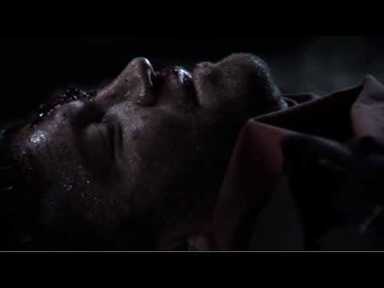 We have all heard the "its never to late" phrase before but I have never questioned its credibility. Who was it that said this and how do I know I can trust whoever's words these are? I mean, to me, these are nothing more than words said by a stranger and apparently were the same to Saki, the author of The Interlopers, specially when it came to the topic of forgiveness. The Interlopers is about two guys named Ulrich and Georg, who are members of rival families for decades. In a fight for a piece of forestland, each of the guys feel the pressure to maintain this rivalry and when Ulrich heard Georg was hunting in this forest, he gathers some of his men in quest for Georg's last breath. Fate although resulted in having them both together in a not so easy to get out of situation and make peace right before natures kills them both.
Saki is such an interesting author. During a class discussion, someone pointed out why would the author make the protagonists of the story apologize to each other and reach peace after decades of rivalry right before their death? I thought about this hard and I reason Saki's purpose was to contradict this old phrase of "it's never too late". Maybe he doesn't agree with it and believes there is a point in which it is too late to act just like it was for Georg and Ulrich. On the other side of spectrum of view, it could also be possible he wanted to emphasize the foolishness of keeping a grudge that has no personal connection to your life. Just because their family members fought over this piece of forestland did not mean they had to fight too. I also thought about the symbolism of fighting for land and applied it to politics. I found myself also considering Saki's purpose was to express his opinion on countries that fight a lot over power. Maybe the fact Ulrich and Georg die after they make peace is symbolic for the same peace countries accomplish after they have already fought and harmed many people leaving the peace achieved in vain since the harm was already done.
Sometimes the ambiguity of a story's purpose kills me, but then I realize, regardless of Saki's purpose on choosing this ending, Saki has achieved to make the story intriguing.
P.S Checlk out this great short film about the story.
Jose.
Everything in life is organized in a hierarchical form. Have you noticed? Take a look around you. Everything. Our ecosystem, our school system, our government, competitions and personal doctrines all are arrange in a hierarchical order of value. Abraham Maslow, an American psychologist, who created a theory known as The Maslow's Hierarchy Of Needs, in which he explains a human being must first start fulfilling certain levels before reaching the graved goal of self-actualization to function beneficially and properly in our society. There are many version of this theory that relate to certain fields like one used for only by nurses, writers, doctors, etc. No matter who it is directed to, they all have the same concept of stating humans must meet their Physiological needs before moving to safety, safety to belongingness, belongingness to self esteem, and lastly from self esteem to self-actualization.
Currently enrolled in AP English 12, this is probably one the greatest tools that I've gained from this class. While reading Literary Fiction, I can search and apply this concept to the characters in the story to reach an even deeper meaning and a better understanding of the world. I like the fact our world offers a lot of knowledge and views from all sorts kind of people and now I know what I need to be watchful for when reading or analyzing a piece of literature.
Jose.
The article that I read today, "Are you willing to be disturbed", was truly an eye opener. The article exposed the paradoxical idea that people are too stubborn to admit that we don't know the answers that solve today's problems yet the only way to find out what those answers are is to simply admit we don't know them. I understand that we all have ideas that are dear to us and letting them go can be intimidating but I do agree that with a fresh mind we can catch things that were missed before. The article states that those dear ideas are so tough to let go because they help us define our personality but that is no reason why we should stop being curious about the points of views of others. Not a single person experiences the same thing as another so if we would just listen to one another, it's possible that we could find answers.
Now, when we listen to each other we should not be scared when we find ideas that contradict our own, disturb or confuse our minds. Confusion and disturbance are viewed as a good things since the mind will try to reason and reach peace but in the process of doing so a new level of understanding could be gained.
How can we improve as a society if everyone is pleased with their own ideas? We must start to have more curiosity and willingness to search for new, fresh views. I agree with this article. I feel a part of human nature is to be stubborn and arrogant but if we want to help society as a whole, we must see beyond this and be willing to learn something new. I, personally, am not a easy person to satisfy. I sometimes even have a hard time satisfying myself. I just always believe there is always space for improvements and a lot more people should feel this way if they want the world to improve too.
Jose.
The Locus of Control Theory is a theory originated by Julian Rotler in the 1950's that classifies and refers to an individual's perception about the underlying main causes of events in his/her life. In other words, do you believe that you are in control of the outcomes brought by your future or do you believe that some supernatural force is in control? Within this theory in personality psychology, people can be divided into having one of the two types of Locus of Control, an Internal or External Locus of Control.
1. Internal Locus of Control is found in individuals who believes his/her behaviors guided by his/her personal decisions. They believe to have the control.
2. External Locus of Control is found in individuals who believes his/her behavior is guided by fate, luck, or other external circumstances.
There is a common misunderstanding when the two types of categories are introduced at first. Both of the categories have their advantages and disadvantages. People who have an Internal Locus of Control seem to be wealthier compared to people with an External Locus of Control but are also found to live a unstable lifestyle, either physically or mentally. People with an External Locus of Control are found to live more easy going, relaxed, happy lives but tend to be regular.
Now, what would this idea serve if I didn't apply it to myself? I don't seem to fit it in either. Life is never black or white, but a shade color and that's what I feel like I am. In some situations I feel like I have the power to control my outcomes like for example my grades in school. I know that I will receive good grades only if I put quality into my work instead of waiting for fate to hand me an A. On the other hand, I also believe there are things that are out of my hands to control. Life itself is an example. People don't know exactly what they want to do or where they will end up and I believe there is a supernatural force that controls this things. If I were to choose only one type of Locus of Control, I would feel like I would be fighting myself.
The higher you go, the harder you'll fall. The lower you go, the higher you'll rise.
Jose.
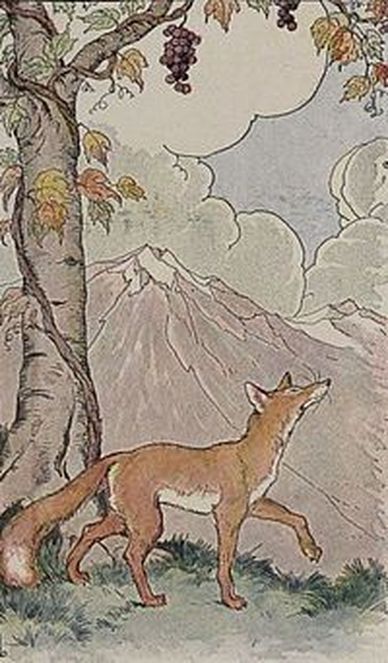 The newest psychological theory that I get to add to my shelf of knowledge is the Theory of Cognitive Dissonance. Wow, the new addition sure is a fancy way of referring to the state of mind holding two contradictory ideas are at the same time. You'll be surprise how many examples of this I have found in stories ever since I became aware of its existance. It's been like reliving the time when the iPhone first came out. Everyone had it but you didn't really pay mind to it until someone close to you got and now you began to see it everywhere on everyone. Well, the iPhone, in my case are examples of Cognitive Dissonance. In The Most Dangerous Game by Richard Connell, the protagonist Sargen Rainsford find himself conflicted of Zaroff's preferences of hunting humans!
Now, if we listen closely to the things being said around us, we can some examples too. I read an article in class which said in order to learn new things you must stay confused. WHATTT!?! DO I hear the contradictory alarm going off? How can I learn if I am purposely staying confused?
Now you may be wondering what this picture of this fox here is. You see, during Ancient Greece, a slave and story teller named Aesop created many fables that famous and teaches many important life lessons. In his famous fable The Fox and Grapes, he gives an example of cognitive dissonance by describing a fox who wishes to reach some grapes that are unreachable. The story is a metaphor to human beings who try to maintain two conflicting ideas knowing finding a balance will unreachable just like the grapes.
Jose.
Survival Lesson 2. How well would you do if all of the sudden you were place into the vicious environment of the highest social class? Could carry a single conversation with them or will you simply let them devour you from the circuitous expressions entering your ears? Well, my friend, the key to survival is to sharpen your knowledge. Your brain and what you know will be your only shield so you want it to be strong. In my AP English 12 class, I was given an article to read called The Habits of Mind. These habits of mind are only found among the wealthiest and the most intelligent people but not for long. Let's take a look at these habits. - Managing Impulsivity
- Listenig with Empathy and Understanding
- Thinking Flexibility
- Metacognition
- Striving for Accuracy
- Applyign Past Knowledge
- Questioning and Posing Problems
- Thinking and Communication with Clarity and Precision
- Gathering Data Through All Scenes
- Creating, Imagining & Innovating
- Responding With Wonderment and Awe
- Taking Responsible Risks
- Finding Humor
- Thinking Interdependently
- Remaining Open to Continuous Learning
I know that just by looking at this list, specially if you are not familiar with this terms, can be a bit overwhelming. So don't stress. Some of us do half of these things and we don't even realize it. Being aware of the Habits of Mind has really inspire me to practice them on a daily basis. Practicing this and being aware of this common characteristics will onle make a person more balanced and well rounded so just in case you get stuck in a Tea Party meant only for the rich, you will interact with confidence (just like in this picture) and showcase your Habits of Mind. Jose.
Survival of the Fittest. What would you do if you were stranded on an island that is known for the place where humans were haunted and killed like animals? Yes, HAUNTED and KILLED LIKE ANIMALS. Honestly, I don't even know what I would do myself. The Most Dangerous Game by Richard Connell is a story about a guy named Sanger Rainsford who falls off his ships near an island that is referred to as the "Ship-Trap Island" among sailors. With that island as the nearest land to swim to, he swims to safety only to find himself meeting a hunter named General Zaroff who has an idiosyncratic preference when it comes down to choosing what to hunt. The story is filled with suspense and many literary concepts that are easily identifiable. Even psychological and sociological concepts, like the Theory of Cognitive Dissonance and Maslow's Hierarchy of Need, can be applied to this story easily. While reading this story, I just couldn't help myself to compare my I thought my reactions would of been to the one found in the story. I asked myself questions like what was it that I would have done differently, how would I had reacted to the situations faced by Rainsford, and most importantly what was it that I was going to do in order to survive! This story reminded me a lot of The Hunger Games by Suzzane Collins, in which a girl named Katniss Everdeen is chosen by the government to fight for her life against other teenagers like herself, and the TV series Lost, in which an airplane crashes on a random island and the passenger have to manage to survive in a jungle.
Imagine how much fun would it be act this story out! It's filled with action! I secretly picture a movie when I read a story. I think about what would be the best camera angles to do this scene or that one, or the perfect location in which the movie could be recorded, or even the actors that would be casted as. If you have not read this story, I highly recommend you to read it, and for those who read it already, you must re read it. Just like when you watch a movie twice and you notice things that in the first time were missed, you'll do the same with the story. You'll enjoy it more.
What do you think of while you read stories?
Jose.
|

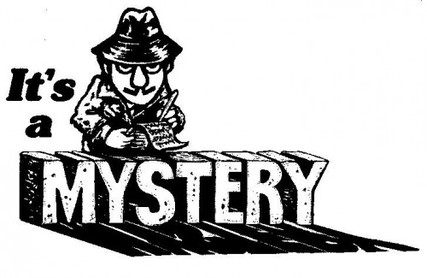


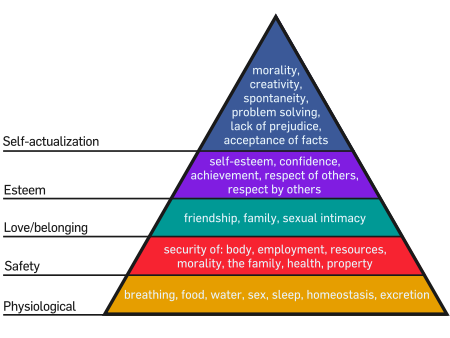

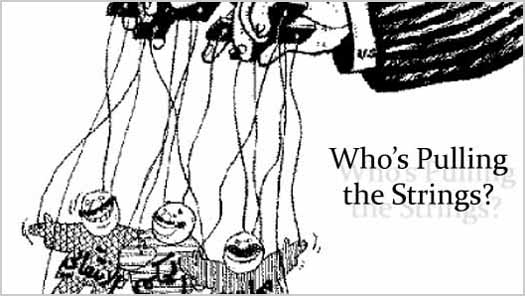

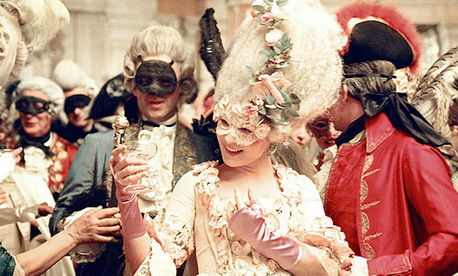
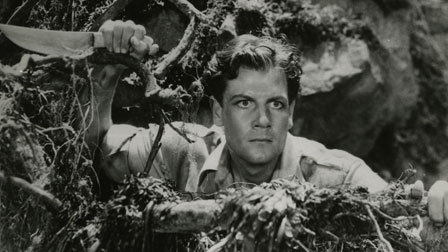
 RSS Feed
RSS Feed